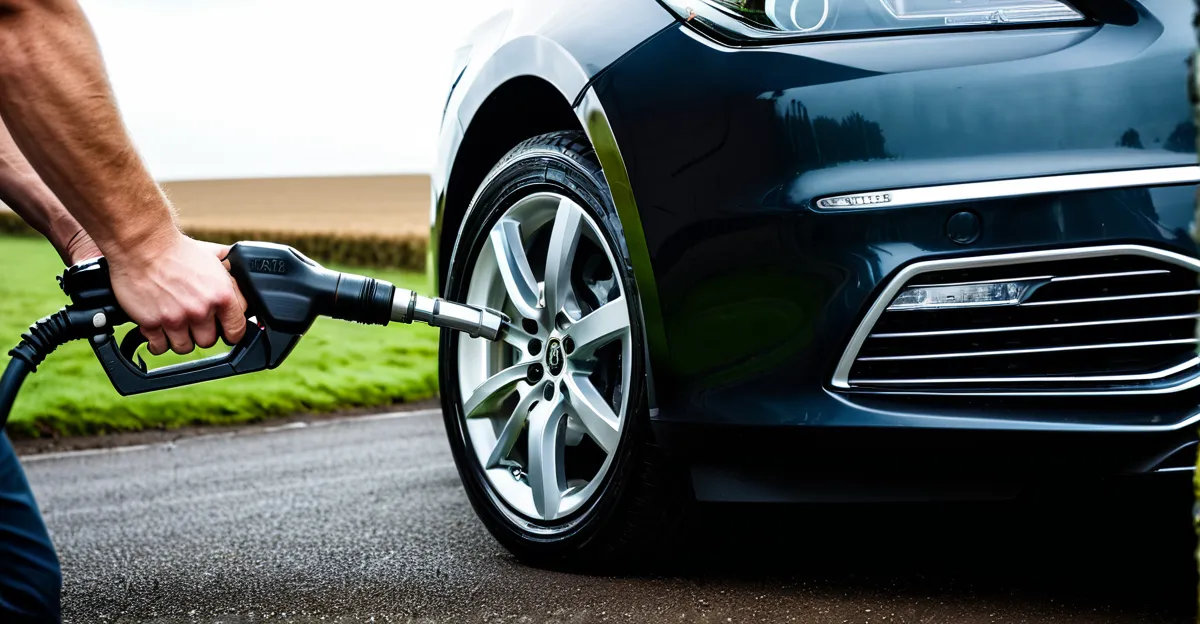Current Strategies by UK Automakers to Enhance Fuel Efficiency
UK automakers are increasingly prioritizing fuel efficiency through a variety of innovative strategies aimed at reducing emissions and optimizing vehicle performance. A key approach involves the adoption of lightweight materials such as aluminum and advanced composites in vehicle construction. By reducing overall weight, these materials significantly improve fuel economy without compromising safety or durability.
In terms of engine efficiency, UK car manufacturers are investing in next-generation powertrains that deliver improved combustion and reduced fuel consumption. Technologies such as turbocharging, variable valve timing, and direct fuel injection are being refined to maximize energy conversion and minimize waste. This engineering focus helps balance performance demands with tightening fuel economy standards.
This might interest you : What impact does Brexit have on the UK automotive industry?
Additionally, many manufacturers are incorporating eco-driving technology features like start-stop systems, regenerative braking, and driver assistance tools that encourage fuel-conservative driving habits. These systems reduce fuel usage during idle or low-demand conditions and provide real-time feedback, promoting more efficient vehicle operation.
Together, these combined strategies reflect the diverse and practical UK automakers’ fuel efficiency efforts, showcasing their commitment to meeting consumer expectations and regulatory requirements.
Have you seen this : How are UK automakers adapting to changing consumer preferences?
Electrification and Hybrid Technology Initiatives
Electric vehicles UK and hybrid technology are rapidly reshaping the landscape for UK car manufacturers as they pursue aggressive electrification plans. UK car electrification efforts focus on diversifying model line-ups with both fully electric and hybrid options, addressing consumer demand for greener alternatives while complying with stringent emissions regulations.
UK automakers fuel efficiency gains are increasingly driven by the integration of advanced battery technologies. Improvements in battery energy density and charging speed enable extended driving ranges and greater practicality for electric vehicles. This advancement is crucial, as range anxiety remains a common barrier to wider electric vehicle adoption in the UK.
Notably, Jaguar Land Rover has set an ambitious electrification plan, aiming to transition a significant portion of its models to electric or hybrid powertrains within the next decade. Similarly, MINI Electric production highlights the UK’s commitment to electric mobility by combining iconic design with cutting-edge hybrid technology. These strategic moves underscore the proactive stance of UK car manufacturers in embracing emerging powertrain technologies to enhance fuel efficiency.
The continual refinement of hybrid technology, combining internal combustion engines with electric motors, helps UK car manufacturers strategies by optimizing fuel usage during variable driving conditions. This dual approach allows for regenerative braking, engine downsizing, and seamless power delivery that together contribute to lower overall fuel consumption.
In summary, the robust pursuit of electric vehicles UK and hybrid technology initiatives reflects a decisive shift among UK automakers fuel efficiency efforts towards sustainable, low-emission transportation solutions.
Aerodynamic and Design Innovations
UK car design improvements play a vital role in advancing automotive aerodynamics to boost fuel efficiency. By streamlining vehicle shapes, UK automakers reduce air resistance or drag, which directly decreases the energy required to propel a vehicle, thereby improving fuel economy. A smoother exterior contour can lead to notable fuel savings, especially at higher speeds when aerodynamic forces become more significant.
A key fuel-saving vehicle design feature is the use of active grille shutters. These shutters open or close automatically to optimize airflow over the engine bay, balancing cooling needs with aerodynamic efficiency. When closed, they reduce drag by smoothing the front profile of the vehicle. This technology exemplifies how UK automakers incorporate dynamic design elements to contribute to overall fuel savings.
Underbody covers also enhance aerodynamic performance by creating a flat surface beneath the vehicle. This design prevents turbulent air pockets that increase drag. UK car manufacturers strategies increasingly prioritize such subtle yet impactful modifications, combining them with traditional design aesthetics to maintain both performance and style.
Two prominent examples are Aston Martin and Bentley, which have integrated aerodynamic upgrades into their latest models. Aston Martin’s refined bodywork includes carefully sculpted rear spoilers and side skirts that control airflow. Bentley employs underbody panels and active aerodynamic features that adjust in response to driving conditions. These real-world applications highlight how automotive aerodynamics contribute to measurable fuel efficiency gains while preserving luxury and brand identity.
Regulatory Drivers and Industry Collaboration
UK automotive regulations play a crucial role in shaping UK automakers fuel efficiency efforts. Stringent emissions standards set by both UK and EU authorities compel manufacturers to innovate continuously. These regulations limit allowable CO₂ emissions per kilometer, which directly influences the design and engineering priorities of vehicle production. Compliance is not optional; meeting these standards is essential for market access and avoiding financial penalties.
To navigate these regulatory demands, UK car manufacturers strategies increasingly involve active collaboration across the industry. Partnerships with technology firms and research institutions accelerate development of novel fuel-saving technologies, such as advanced powertrains and battery systems. This collective approach fosters knowledge sharing and accelerates innovation cycles, enabling faster progress toward regulatory targets.
Moreover, the UK car industry has committed to ambitious future roadmaps aligned with national Net Zero targets. These commitments formalize plans to drastically reduce emissions, emphasizing electrification, alternative fuels, and efficiency improvements. Such forward-looking strategies demonstrate the integral role of regulation and collaboration in the UK’s pursuit of sustainable automotive development.







